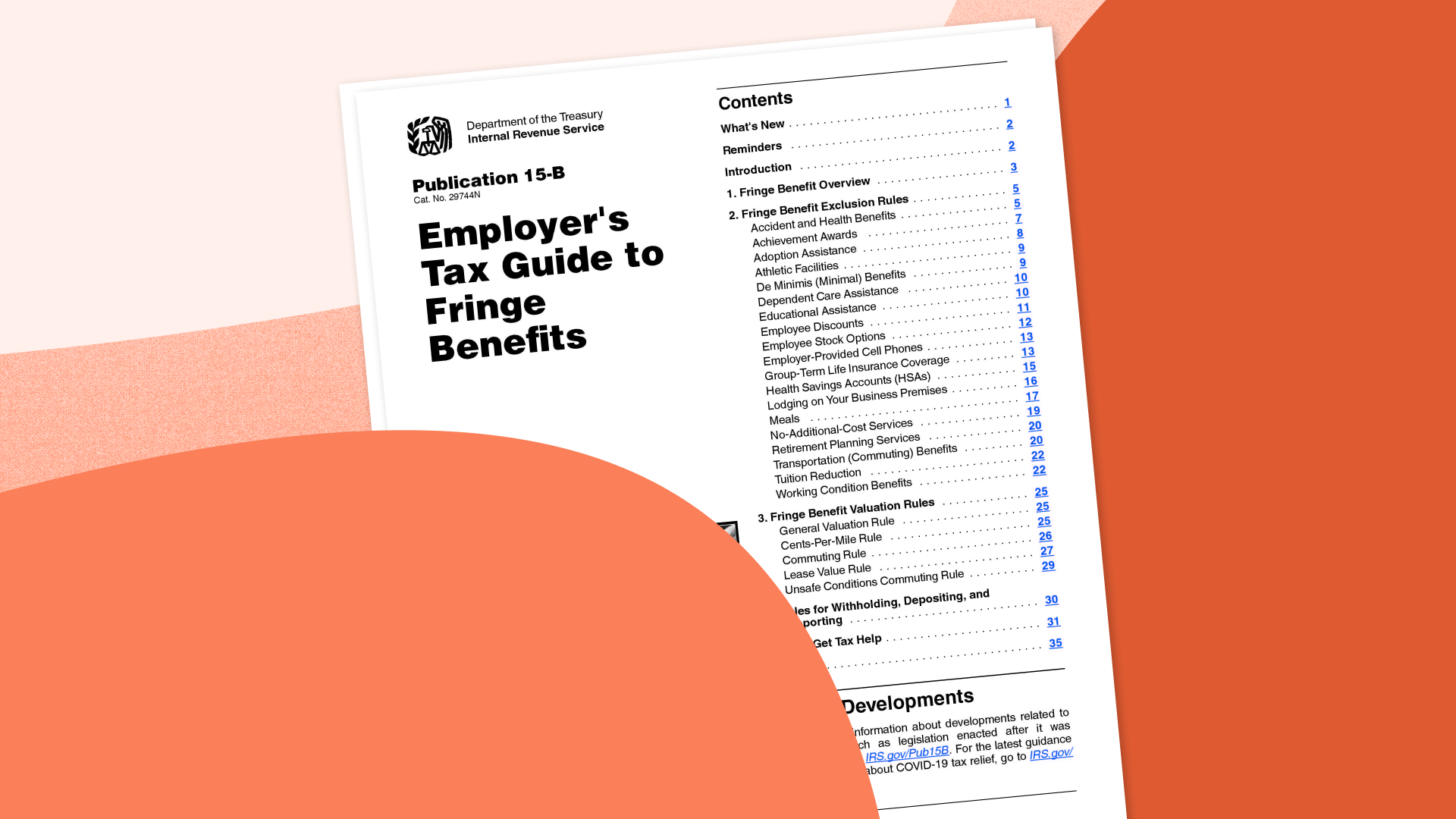Understanding Multi-State Payroll Compliance
Key Factors to Consider for Multi-State Payroll
Compliance Challenges for Multi-State Employers
Best Practices for Multi-State Payroll Compliance
Leveraging Technology for Multi-State Payroll Success
Multi-State Payroll Compliance Success
Streamline Multi-State Payroll with Justworks
Why is multistate payroll so complex? Because taxation and compliance requirements are not the same in all states. Sure, dealing with federal payroll taxes is the same regardless of where your U.S.-based workers are located, but there are many state-by-state payroll calculation differences and filing requirements to consider.
If you have employees working in more than one state, it’s critical for you to understand key compliance considerations for multi-state payroll and how to navigate the challenges that come with it. Not sure where to get started? We’re here to help.
Understanding Multi-State Payroll Compliance
Multi-state payroll processing requires a deep understanding of the rules and regulations that govern employee compensation in each state. From income tax withholding to unemployment insurance taxes, and more, the intricacies of compliance can significantly impact payroll processing and filing.
State and Local Income Tax Withholding
Managing state income tax withholdings is one of the most important aspects of multi-state payroll compliance. As a multi-state employer, you are responsible for ensuring that the correct amount of income tax is withheld from your employees' paychecks based on their work location and that payments are properly filed with appropriate tax authorities in each jurisdiction.
This is complex because there are so many state-by-state differences, as well as local requirements in some places. A few states don’t have a state income tax, but most do. Each state with an income tax also has its own withholding requirements and filing procedures. Additionally, many counties, municipalities, and school districts require residents to pay local income taxes via payroll withholding.
State Unemployment Insurance
Income tax isn’t the only challenging aspect of multi-state payroll compliance; unemployment insurance is also complex when you have employees in a number of states. Federal unemployment tax (FUTA) requirements are the same nationwide, but state unemployment insurance (SUI) regulations and percentages can vary greatly between states.
When you’re responsible for multi-state payroll, you’ll need to know which state's unemployment insurance applies to each employee, ensure you're contributing the appropriate amounts, and be sure to file premiums with the proper tax authorities. Additionally, when departing employees file for unemployment benefits, you’ll have to deal with multiple agencies for unemployment hearings and appeals.
Reciprocity Agreements
Beyond knowing the state-by-state differences, you’ll also need to know whether you have employees who commute to work at one of your physical locations but actually live in a different state. For example, some parts of Pennsylvania are within an easy commute of New Jersey, so it’s not unusual for people to live in one state but work in the other.
This matters for payroll purposes because some states—including Pennsylvania and New Jersey—have reciprocity agreements that allow residents of one state to work in another state without having to file non-resident tax returns. Being aware of these agreements can simplify payroll processing for employees who live and work in different states.
Key Factors to Consider for Multi-State Payroll
Managing payroll for employees in multiple states can definitely be challenging. Considering the key factors listed below can help ensure compliance.
Keep Up with State-Specific Regulations
Tax laws and regulations are updated frequently, as are other factors that impact employer compliance. Employers are responsible for keeping up, so it’s crucial to stay current with the latest requirements in each state where you have employees. This includes keeping up with changes to tax rates, minimum wage laws, overtime rules, and other state-specific labor laws.
Implement a Robust Payroll Solution
When you have employees in multiple states, it’s critical to invest in a robust payroll solution that can handle the complexities of multi-state payroll processing. Doing so will help you process payroll efficiently and accurately, including properly managing complex tax filings in many jurisdictions.
When selecting a payroll solution, it’s important to look for HR and payroll software or services that offer robust features, including tax calculation capabilities, automated compliance updates, and integration with time-tracking and other HR functions.
Consistently Maintain Accurate Records
Documentation is critical for employers of all sizes. It’s extremely important to maintain accurate and consistent records for all employees, regardless of where they work. This includes documentation for tax withholdings, wage and hour records, and other pertinent information that may be required by state authorities, as well as for other compliance-related purposes.
Compliance Challenges for Multi-State Employers
Understanding the key challenges of multi-state payroll can help you avoid potential pitfalls.
Managing Tax Filing and Payments
Filing taxes and making payments to multiple state authorities can be time-consuming and prone to errors, especially when using a DIY approach to payroll. It’s critical to use an accurate payroll solution that can handle the complexity of your multistate workforce. Implementing an automated system can help streamline the payroll process and reduce the likelihood of mistakes.
Navigating Different State Laws
Whether it's due to remote work arrangements or operating in multiple locations, ensuring compliance with various state laws is essential. In addition to state-specific tax requirements, each state can also enact its own employment laws.
State-specific labor laws typically require compliance above and beyond what is required under federal law, and there can be major differences from one state to another. Navigating these differences and applying them correctly can be a daunting task for multi-state employers.
Best Practices for Multi-State Payroll Compliance
Adhering to best practices can help you manage the process of paying your employees and keep you compliant with state regulations.
Regularly Train Your Payroll Team
Training is essential to help payroll personnel keep up with complex and rapidly changing payroll regulations and other requirements for multi-state employers. Your payroll team should regularly complete training on the latest best practices and payroll regulations in all states where you have employees. Having a well-informed team is key to maintaining compliance.
Conduct Periodic Compliance Audits
Training your team is important, but so is verifying the accuracy and efficiency of your processes. Regularly auditing your payroll processes can help identify areas of non-compliance so they can be corrected before they become bigger issues. Consider hiring a third-party auditor with multi-state expertise to provide an objective review.
Centralize Payroll Management
Centralizing payroll management can help ensure consistency and compliance across all states. Using a centralized system designed with the unique complexities of multistate payroll in mind allows for better oversight and control over payroll processes.
Leveraging Technology for Multi-State Payroll Success
Technology plays a pivotal role in managing multi-state payroll compliance. By leveraging the right tools, you can simplify the payroll process and reduce the risk of non-compliance.
Integrating Payroll with HR Systems
When selecting payroll software, look for features that cater specifically to multi-state payroll, such as automated tax calculations, compliance alerts, and easy reporting for multiple states. Integrating your payroll system with your HR platform can provide a seamless flow of information and reduce the chance of errors that can occur with manual data entry.
Utilizing Cloud-Based Solutions
A cloud-based payroll solution is ideal for employers that do business in multiple states or that have a remote or hybrid team. This type of system offers the flexibility and scalability needed to manage a distributed workforce while also providing easy access to real-time data for better decision-making.
Multi-State Payroll Compliance Success
Multi-state payroll processing can be a complex undertaking, but with careful planning and the right HR tools, you can pay people accurately while also staying compliant and avoiding penalties. As your business grows and the remote work landscape continues to evolve, staying informed and proactive in your approach to multi-state payroll is more important than ever.
By understanding the key compliance considerations and implementing best practices for multi-state payroll processing, you can ensure that your payroll operations are efficient, accurate, and compliant with all federal and state regulations, no matter how many states your team members work in. With the right tech solution in place, multi-state payroll doesn't have to be a headache or a source of stress. Instead, it can become a streamlined, compliant process that supports your business's growth and success.
Streamline Multi-State Payroll with Justworks
Are you ready to streamline your multi-state payroll processing and compliance procedures once and for all? Look no further than Justworks. Our cloud-based HR tools simplify payroll for multi-state employers like you. Not only do we process payroll and provide payroll compliance support in all 50 states, but our powerful cloud-based payroll and HR software platform streamlines onboarding and other time-consuming administrative HR processes to help you save time and improve accuracy.
Remember, staying compliant with multi-state payroll is not only about avoiding fines and penalties. It's also about maintaining your employees' trust and ensuring that they are compensated fairly and accurately, no matter where they work. When you become a Justworks customer, we’ll help you do just that. We’ll be with you every step of the way, providing the support you need to achieve multi-state payroll success. Ready to master multi-state payroll with Justworks by your side? Contact us to find out how you can get started.
Learn more with Justworks’ Resources
Scale your business and build your team — no matter which way it grows. Access the tools, perks, and resources to help you stay compliant and grow in all 50 states.







